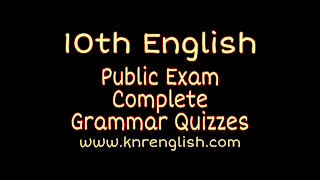GRAMMAR IN ONE MINUTE
Helps you learn Faster than ever.
Intermittent Fasting vs Indian Vedic Fasting
Intermittent Fasting vs Indian Vedic Fasting
Both intermittent fasting and Indian Vedic fasting involve periods of not eating, but they have some key differences:
Intermittent Fasting (IF):
Focus: Cycles between eating and fasting windows. There are no specific dietary restrictions.
Methods: Popular methods include 16/8 (fasting for 16 hours, eating in an 8-hour window) or 5:2 (eating normally for 5 days, fasting for 2).
Benefits: May support weight loss, improve blood sugar control, and reduce inflammation [Mayo Clinic].
Origin: Modern concept based on scientific research.
Indian Vedic Fasting:
Focus: Purification of body and mind, often with spiritual or religious significance. May involve specific dietary restrictions.
Methods:
Ekadashi: Fasting or limited eating on the 11th day of waxing and waning moon.
Shivaratri: Fasting or limited eating on the festival night dedicated to Lord Shiva.
Ayurvedic Fasting: Focuses on balancing doshas (body energies) through fasting and dietary choices. Often involves one mild fast day per week.
Benefits: Similar potential health benefits to IF, along with spiritual and mental well-being.
Origin: Ancient practice rooted in Vedic scriptures and Ayurveda.
Here's a table summarizing the key differences:
Feature | Intermittent Fasting | Indian Vedic Fasting |
Focus | Eating windows | Purification, spiritual significance |
Methods | Flexible time-based restrictions | Ekadashi, Shivaratri, Ayurvedic fasts |
Dietary Restrictions | None | May involve limitations (e.g., vegetarian, no grains) |
Origin | Modern scientific concept | Ancient Vedic tradition |
In short: Intermittent fasting is a structured eating pattern, while Indian Vedic fasting incorporates fasting practices into a broader spiritual and health philosophy. You can even combine elements of both approaches!
Devotion and Fear towards God!
Devotion and Fear towards God!
Although the idea of inculcating both devotion and fear in children has been around for a long time, there is a lot of debate about this approach.
Why is it important to cultivate devotion in children?
- Morality: Devotion instills moral values in children. It encourages them to follow values like truth, non-violence, and compassion.
- Peace: Devotion gives peace of mind. It relieves stress and anxiety.
- Social Service: Devotion teaches the philosophy of serving society. It fosters values like helping others and developing society.
Why is it wrong to instill fear in children?
- Health: Excessive fear harms children's mental health. It leads to problems like anxiety and depression.
- Creativity: Fear suppresses children's creativity. They are afraid to learn new things and try new things.
- Independence: Fear prevents children from being independent. They are afraid to make their own decisions.
What should parents and teachers do?
- Love: Children should be loved. Try to understand them.
- Self-confidence: Children should be encouraged to be self-confident. Recognize and encourage their abilities.
- Moral Values: Teach children moral values. Encourage them to follow values like truth, non-violence, and compassion.
- Independence: Give children the opportunity to think independently and make decisions.
- Cooperation: Work cooperatively with children. Listen to their opinions.
Conclusion
It is good to cultivate devotion in children. But it should not be based on fear. Devotion should be cultivated through love, self-confidence, and moral values. Children should be encouraged to think independently and make decisions. In this way, we can build a better society.
Most Popular Post
10TH CLASS ENGLISH GRAMMAR TOTAL TEXTBOOK QUIZZES
Dear 10th Students! If you would love to be a Topper in English, you must practice all these Quizzes. Help your friends by sharing ...

Other Popular Posts
-
BOOK REVIEW : 6 Book Title : 365 Fairy Tales Storica. Author : Anonymous. Pages : 198 Price : Rs. 495/- Brand : Pegasus . Website : www.pe...
-
Book Review 10 Life's Amazing Secrets Title: Life's Amazing Secrets Author: Gaur Gopal Das Price: Rs. 250...
-
Dear 10th Students! If you would love to be a Topper in English, you must practice all these Quizzes. Help your friends by sharing ...
-
Language Festival SBM. ZPHS. MUTYALAPALLI. Grattitude A Moral Story Language Festival SBM. ZPHS. MUTYALAPALLI. Thank You So Much
-
The TOEFL (Test of English as a Foreign Language) exam assesses the English language proficiency of non-native English speakers. While the...
-
9th English, The Snake and the Mirror 11 Phrasal Verbs - II. Loading…
-
Tenses and Voice at A Glance. Tables with all Pronouns. And the Rules of Basic Usage. Just by-heart them. You will do wonders. Click this...










